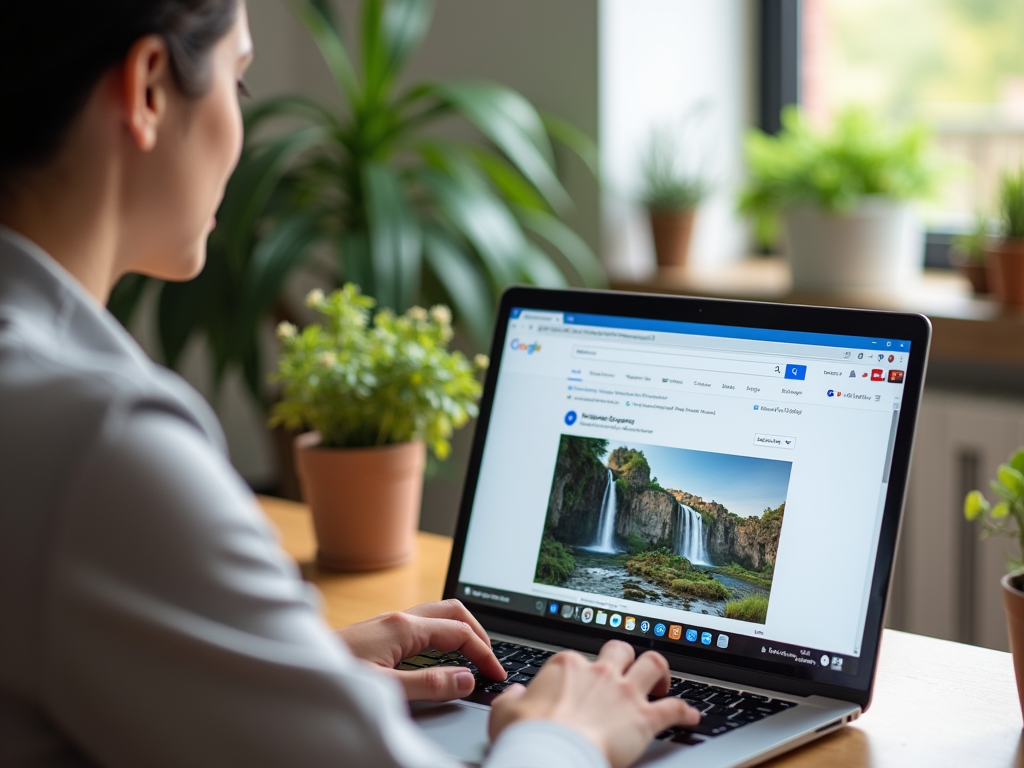
In today’s digital age, the ability to perform a reverse image search has become essential for verifying photos, tracing sources of images, or simply finding more information about a subject captured in an image. This article will reveal five of the best tools available for performing a reverse image search online. These resources will help you identify images, discover their origins, and find similar or higher-resolution versions of the image in question.
Google Images: The Ubiquitous Choice

Google Images is perhaps the most well-known and frequently used tool for reverse image searching. Its intuitive interface allows users to upload an image or paste an image URL to find visually similar pictures across the web. Given Google’s extensive index, it often provides the most comprehensive results.
To use Google Images for reverse searching, follow these steps:
- Visit Google Images.
- Click on the camera icon in the search bar.
- Select “Upload an image” to upload a file from your device, or paste an image URL.
- Review the results that Google displays, exploring different websites for more context or alternatives to the image.
Google Images is particularly useful for recognizing popular images and figures, often directing users to the source or related web pages.
Bing Visual Search provides an alternative to Google, offering its own set of functionalities and often fetching slightly different results. Bing’s tool is not only designed to find image matches but also provides insights related to the objects present in the image.
With Bing Visual Search, users can perform searches through uploading an image file or by dragging and dropping an image into the search box. The platform is especially effective in identifying objects, places, and even extracting text from the images when applicable.
Using Bing can sometimes yield results that are missed by Google, making it a great supplementary tool for those persistent in their search pursuits.
TinEye: The Specialized Reverse Image Search Engine

TinEye is a dedicated reverse image search engine that focuses exclusively on finding image matches and tracking image use across the internet. With a simple interface, users can upload an image or enter an image URL. TinEye then sifts through its extensive database to deliver matching images and provide data about where those images appear online.
One of TinEye’s standout features is its ability to find modified versions of an image, such as those that have been cropped, resized, or otherwise altered. This makes TinEye a powerful tool for those concerned with intellectual property and copyright issues.
For users who frequently need to perform reverse image searches, TinEye offers browser extensions for quick access, making it convenient for repeated use.
Yandex Images: The Russian Giant’s Powerful Search Tool
Yandex, the Russian search engine, also offers a highly functional reverse image search tool. Known for its sophisticated image recognition technology, Yandex can often recognize faces, landscapes, and objects with impressive accuracy.
To use Yandex Images, users simply need to drag and drop an image into the search bar or upload it directly. Yandex is particularly useful for non-English searches, often catching results that English-centric search engines might miss.
For anyone interested in a comprehensive search approach, using Yandex alongside other image search engines can broaden the scope effectively, ensuring no stone is left unturned in your image investigation.
Social Catfish: Specialized for Social Media and Dating Sites
When it comes to verifying identity or source on social media or dating platforms, Social Catfish stands out as a reverse image search tool geared towards these domains. Built to track down profiles and verify authenticity, Social Catfish offers a unique edge over other more generalist search tools.
Social Catfish employs a comprehensive search process that supports not only image data but email and social media searches, providing a multi-faceted approach. It is particularly popular for its ability to uncover fake profiles or to verify online relationships.
The tool’s specificity makes it invaluable for users seeking to navigate the complexities of online identity and relationships, providing clarity and supporting user safety online.
Conclusion
Reverse image searching has become a crucial skill in navigating the vast landscapes of information and images available online. Whether you’re verifying the authenticity of an image, seeking out a higher quality version, or identifying a mysterious place or person in a photo, the above tools offer invaluable assistance. Google Images and Bing Visual Search provide robust general options, while specialized services like TinEye, Yandex, and Social Catfish offer unique functionalities suited for specific needs. Exploring these options will help you harness the full power of reverse image searches.
Frequently Asked Questions
- What is a reverse image search?
Reverse image search is a technology that allows users to search for related images or image information by using a sample image as the search query rather than words. - Can reverse image searches be used on mobile devices?
Yes, most reverse image search tools, including Google Images and Bing Visual Search, are accessible on mobile devices, allowing you to upload images or provide URLs directly from your smartphone or tablet. - Is there any cost associated with reverse image searches?
The majority of reverse image search tools, like Google Images, Bing, and Yandex, are free to use. However, services like Social Catfish might offer premium features requiring a subscription fee. - What information can I find with a reverse image search?
A reverse image search can provide details about similar images, their sources, higher-resolution versions, and pages hosting these images. It can also help identify people, places, and things depicted in the image. - Are reverse image search results always accurate?
While reverse image searches are quite powerful, their accuracy can vary based on the database they draw from and the distinctiveness of the image. Using multiple search engines can improve reliability.




